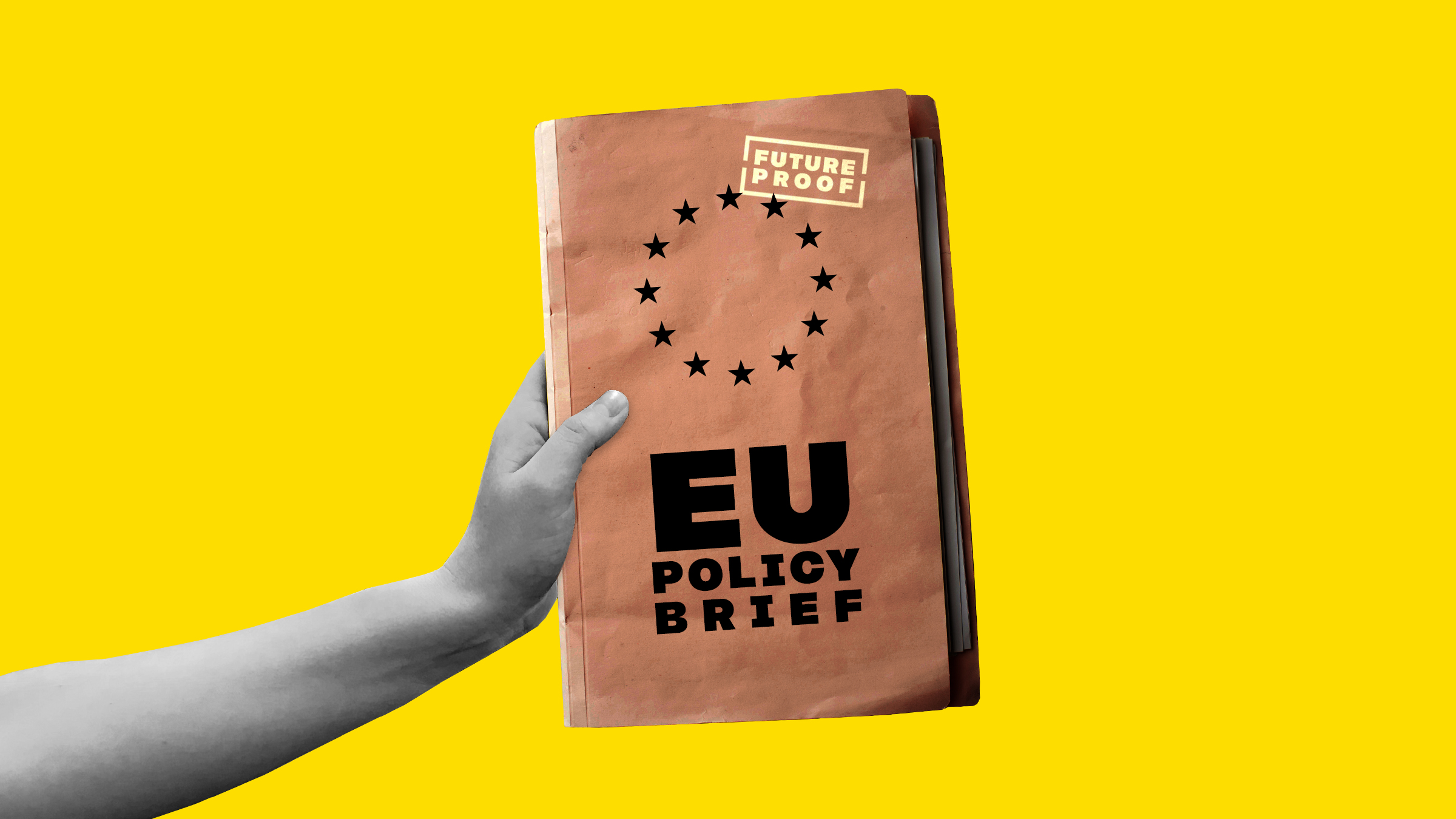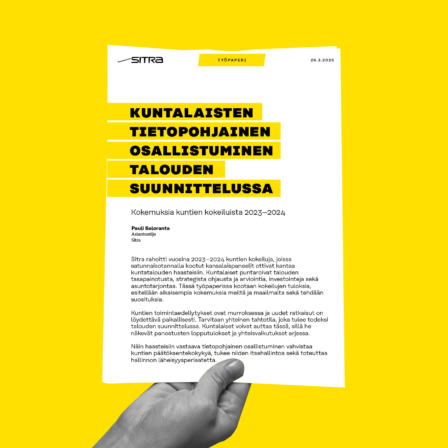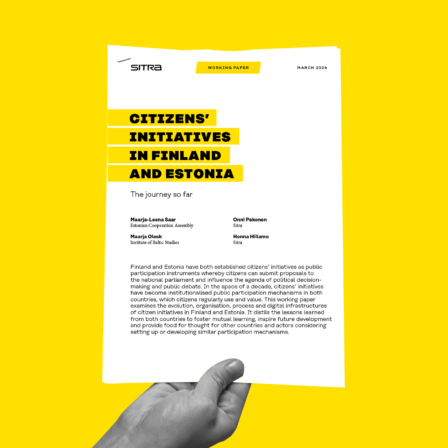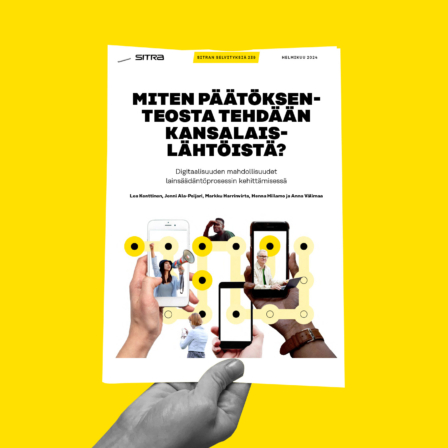4 key findings and suggestions for improvement
1. EU-legislative procedures lack openness in Finland, thus citizen participation is limited
In Finland, EU topics are most often addressed behind closed doors by government bodies and parliamentary committees instead of through open plenary debates. National working documents related to EU topics are not publicly available on government websites. Consequently, citizens can neither easily follow the progress of the legislative processes nor influence the processing of EU legislation in Finland.
Suggestions for development: Public and expert consultations ought to be organised on EU legislation that is of high national relevance. National working documents related to EU topics should be openly published on the government websites, and a general communication channel should be established to facilitate public monitoring of EU legislative processes.
2. Finland is reactive, rather than proactive
Finland tends to react to the initiatives of the European Commission rather than proactively influence the Commission’s strategic planning and work programmes in their early phases.
Suggestions for development: Finland’s focus on the EU should progress towards influencing the drafting phase of legal initiatives and shaping the EU agenda in general. This way, nationally important topics could be brought forward effectively by the EU agenda. Furthermore, national policymakers should develop a list of EU priorities.
3. The role of parliament in advance influencing is unclear
In Finland, parliament takes part in (shaping) the country’s official position on matters concerning EU policy. Nevertheless, the role of parliament in national influencing, or in other words, its function in advance influencing and priority identification in the early stages, is not as strong as it could be. Advance influencing is currently the responsibility of various ministries.
Suggestions for development: The government and parliament should jointly agree on priorities for the task of advance influencing. Both bodies should be in agreement on national positions when addressing the EU’s key strategic guidelines, such as the Commission’s key priorities and work programme, as well as the strategy plan of the Council of the EU.
4. Data on the EU legislative process is not utilised to improve the process
The different phases of proceedings on EU matters create a large amount of data, which is yet unutilised. The process data, such as time stamps of the parliament, government, and EU bodies, have not been combined and data containing process information is not publicly provided by the government or the parliament.
Suggestions for development: Process data must be made accessible and consolidated to facilitate citizen participation and process management. A national monitoring service such as the Legislative Train of the European Parliament should be created. By means of such a tool, citizens would be able to follow progress, the scheduling of EU initiatives, and potential points of participation. The deployment of a common process identifier for each matter that is addressed would enable data to be combined.
Conclusory remarks
- According to the Grand Committee of the Finnish parliament, transparent EU policymaking strengthens democracy, improves public confidence, and promotes good governance.
- The parliament has estimated that nearly half of the topics it handles relate to the EU. Thus, European Union legislation is a vital part of Finnish national decision-making.
- It is crucial that the national democracy continuously develops further and that different opinions are properly taken into account in legislative processes. On the whole, the Nordic model is based on legitimate public administration, a strong rule of law, and a society built on mutual trust. In the same way, transparency and the right to participation are part of the model.
- To promote the abovementioned values, Finland should undertake practical reforms to enhance transparency and citizen participation.
More information
Download the EU policy brief in pdf-format: Finland’s EU legislative process would benefit from wider public participation and early-stage policy influencing
Read more about the study: Finland’s EU legislative process does not support public participation or advance influencing

















Recommended
Have some more.